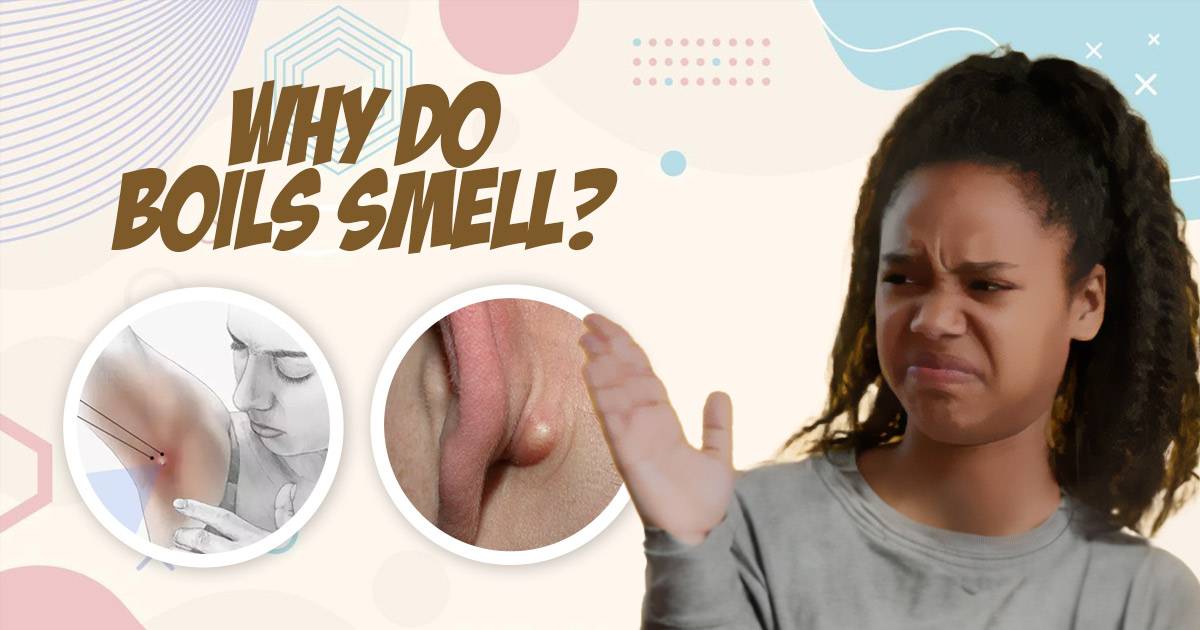Why Do Boils Smell? Causes, Treatment & What Bad Pus Means

Have you ever had a boil and noticed a bad smell? This unpleasant odor can be very embarrassing and upsetting, affecting your social life and confidence. People with chronic skin conditions like boils often feel isolated and depressed, with a lower quality of life. A study in the Journal of Clinical, Cosmetic and Investigational Dermatology found that many individuals with these conditions face these challenges. It’s important to understand what’s causing the odor and find effective treatments to improve both physical comfort and mental well-being.
Possible Diagnosis for Smelly Boils: Hidradenitis Suppurativa
One common reason for smelly boils is a condition called Hidradenitis Suppurativa (HS).
What is Hidradenitis Suppurativa?
Hidradenitis Suppurativa, also known as acne inversa, is a long-term skin condition that causes painful lumps under the skin. These lumps usually form around hair follicles in areas where skin rubs against skin, like the armpits, groin, and buttocks.
Symptoms of HS
- Painful, small lumps
- Redness and tenderness
- Swelling and blackheads
- Pus that smells bad
- Tunnels under the skin connecting lumps
Causes of HS
- Overgrowth of skin cells that block hair follicles
- Problems with sweat glands
- Genetics
- Hormones
- Obesity and smoking
HS can seriously affect daily life. It causes ongoing pain and can make it hard to move due to scarring. The frequent flare-ups and bad smell can be very embarrassing, leading to social isolation and depression. Seeking medical help and making lifestyle changes are key to managing HS effectively.
What Causes the Smell in Hidradenitis Suppurativa?
The bad smell from Hidradenitis Suppurativa (HS) comes mainly from the pus that forms in the lumps and boils. Here’s a simpler look at why this happens:
What Does Pus Smell Like?
Pus can have a really unpleasant smell, often strong and foul, like rotten eggs or decaying matter. This smell is caused by bacteria breaking down tissue inside the infected lumps.
Why Does Pus Smell Bad?
When pus smells bad, it usually means there is an infection. Here’s why:
- Bacteria Growth: HS lumps create a warm, moist place where bacteria can grow easily.
- Inflammation: The body’s response to the infection causes inflammation and more pus.
- Tissue Breakdown: Bacteria break down skin tissue, releasing compounds that smell bad.
- Anaerobic Bacteria: These bacteria thrive in low-oxygen environments and often produce particularly nasty odors.
What Bad-Smelling Pus Means
Bad-smelling pus shows that there is an ongoing infection and inflammation that needs medical attention. It means the body is trying to fight off bacteria, but might need help with antibiotics or other treatments to control the infection and reduce the smell.
How to Treat Hidradenitis Suppurativa
Treating Hidradenitis Suppurativa (HS) properly can help reduce and eliminate the bad smell from boils. Here’s how you can manage and treat HS:
Medical Treatments
Antibiotics:
- Topical Antibiotics: Creams or ointments applied directly to the skin to fight infection.
- Oral Antibiotics: Pills taken by mouth for more serious infections.
Antiseptic Washes:
- Use antiseptic cleansers to kill bacteria and prevent new boils.
Anti-inflammatories:
- Topical Creams: Creams to reduce inflammation and pain.
- Oral Medications: Pills like ibuprofen to reduce swelling and discomfort.
Hormone Therapy:
- Medicines like birth control pills help balance hormones that might be making HS worse.
Immunosuppressants:
- Drugs that calm the immune system reduce inflammation and slow the disease.
Lifestyle and Hygiene Practices
- Maintain a Healthy Weight: Losing weight can reduce skin friction and help manage HS.
- Quit Smoking: Stopping smoking can improve HS symptoms.
- Wear Loose Clothing: Avoid tight clothes that irritate the skin.
- Use Gentle Hygiene Products: Choose mild soaps and avoid harsh deodorants.
Home Remedies
- Warm Compresses: Apply warm cloths to help boils drain and relieve pain.
- Turmeric: Take turmeric supplements or apply it as a paste for its anti-inflammatory effects.
- Epsom Salt Baths: Soak in Epsom salt baths to help with wound care and healing.
- Tea Tree Oil: Use tea tree oil for its antibacterial properties to reduce odor and infection.
You can manage HS more effectively and lessen boil odor by combining medical treatments, alterations in lifestyle, and home remedies. Always talk to a healthcare provider for personalized treatment advice.
The Importance of Correct Diagnosis for Effective Treatment
In conclusion, managing Hidradenitis Suppurativa (HS) effectively requires a combination of medical treatments, lifestyle changes, and home remedies. However, the first and most crucial step is obtaining the correct diagnosis.
An accurate diagnosis allows healthcare providers to create a treatment plan tailored specifically to your condition, improving the chances of effective management. Early and precise identification of HS helps prevent complications like severe infections, extensive scarring, and chronic pain. Understanding the exact nature of your condition enables you to adopt the right strategies to manage symptoms and enhance your overall quality of life.
Misdiagnosis, on the other hand, can lead to ineffective treatments and prolonged suffering. Therefore, if you suspect you have HS, it’s vital to consult a healthcare professional who can provide a thorough evaluation and proper diagnosis. This will set you on the path toward effective treatment and better management of the condition, ultimately helping you lead a more comfortable life.
